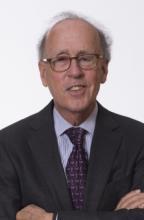Obama's and Kerry's Mid-East Visits
High on the agenda of both the President and Secretary of State will be the civil war in Syria, and the regional crisis it has created, as well as Iran's nuclear program. Earlier maiden voyages to the region by presidents and their emissaries have focused on Israeli-Palestinian peacemaking. I hope I am proven wrong, but I do not believe that we will see any serious effort to restart peace talks.
I say this not because I believe the White House has lost interest in resolving this critical conflict or because I think that they no longer understand that Israeli-Palestinian peace is vital to U.S. interests in the region. The reason for my pessimism is simple: current conditions make progress impossible and pretending otherwise would be a fool's errand.
First and foremost, Israeli Prime Minister Benjamin Netanyahu has, to date, been unable to form a government (this is the reason being given for why Kerry is not going to Israel). The recently completed Israeli election left the Prime Minister weakened. Ever the maneuverer, Netanyahu is attempting to cobble together a governing coalition by tilting this way and that—mixing secular and religious parties, advocates of renewed talks with the Palestinians with hardline opponents. He appears to thrive on dysfunction. The paralysis it produces allows him to rule while avoiding the tough decisions.
Netanyahu will be forced to either call new elections or form a government of indecision. My bet is that, fearing a loss in new elections, desperation will win out and Netanyahu will form a weak governing coalition—able to expand settlements, but incapable of advancing peace.
The Palestinian situation is also dysfunctional. Unity talks between Fatah and Hamas have been fruitless. We once criticized the notion of an endless "peace process" that was all process and no peace. This appears to have been replaced by a "reconciliation process” that is all process and no reconciliation. Given their divisions, it is difficult to see how Palestinians can move forward with any peace-making effort.
Not only are Israelis and Palestinians not in any position to make peace, but neither is the United States. Despite President Obama’s reelection, nothing has changed in Washington's inability to deal with Middle East peacemaking. The continued resistance of Congress to any reasoned discourse on Israel was on display this month during the debate over Chuck Hagel’s confirmation as Secretary of Defense. This debacle harkened back to the humiliating "smackdown" Congress delivered to the President in 2011 when they publicly supported Netanyahu’s position over that of their own President.
In this sorry state of affairs, it is hard to see any new bold initiatives coming from Washington. Israelis wouldn't accept it. Palestinians couldn't do anything with it. And Congress wouldn't support it.
That doesn't mean the White House will do nothing. The President can raise critical questions and support positive behavior while challenging bad behavior. He may speak out about settlements, warning that expanding these colonies in the West Bank and East Jerusalem will make peace impossible. Israelis will, no doubt, be told that the U.S. will continue to support their security, but they should also be told to decide whether the future they seek is one of peace and partnership in a changing Middle East, or one in which they remain at war both internally and externally.
Additionally, the President can and should address Palestinian realities, giving support to Palestine's civil society and business community. Laboring under the most difficult circumstances, support for these critical sectors is vital.
No "fool's errand, but a recognition of real needs and gestures of support may be all that can be expected at this time.
Iran and Syria, however, will likely dominate the agenda of the President and his Secretary of State. Both are pressing regional concerns that cannot be ignored and must be addressed. Kerry's itinerary, including Turkey and several Gulf States, suggests that these topics are front and center on his agenda.
The flood of Syrian refugees to Jordan, Turkey, and Lebanon has become a humanitarian disaster. The refugees face dire conditions that must be addressed. They are taxing the resources of host countries. The humanitarian situation is especially important in Jordan. Also of concern is the fear that Syria's violence and instability will spill over into the broader region.
Almost from the beginning, Syria's civil war became a regional proxy war in which no one wins and everyone loses. 70,000 lives later, there are hints of an international initiative, with the U.S. and Russia in the lead, to find a negotiated settlement. Though certainly difficult, there are hopes this effort can be advanced. For it to succeed, the Russians, Turks, and the Gulf states must be on board. With Jordan's King Abdullah fresh from a visit to Russia, this will be a critical topic of discussion.
With talks beginning with the Iranians over their nuclear program, Gulf Arab states will want assurances that their concerns will be considered. Israel is again making unhelpful "red line" warnings. At this point, their threats of a military strike, though dangerous, ring hollow. With Iran losing popularity in the Arab World because of its involvement in Syria, the last thing the already unsettled Middle East region needs is for Israel to create a new disruption. They should be told to cool their rhetoric.
The agenda for these visits will be different than those of previous visits by Presidents and Secretaries of State. It will, no doubt, be disappointing to those desperate to see a resolution of the Israeli-Palestinian conflict. But reality trumps aspirations. At this point, Syria and Iran are front and center.



















